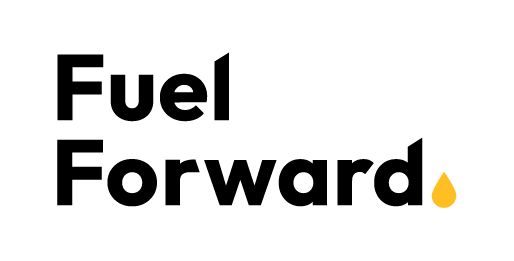Forward looking fuel solutions are made in Canada.
The best part? Fuels that are helping lower our environmental impact are available across the country today, moving us and the things we need.
With big investments, emission reduction technologies and renewable fuel production, Canadian fuel producers are paving the way to lower carbon emissions of transportation fuels while strengthening Canada's energy security and the economy.

Why should this matter to you?
Canada has committed to lowering emissions, and fuel producers have made changes that are helping do just that - right now.
The reality is, 85% of Canadians own or lease a vehicle. We rely on cars to commute to work, get the kids to school or pick up the groceries. Lower carbon-intensity fuels have been developed to cater to your lifestyle and transportation needs, so you can reduce your carbon emissions without breaking the bank.
More ways to lower emissions
Fuels made from renewable sources such as crops, animal fats and recycled waste are becoming more available. These innovative options are compatible with existing cars and trucks, while others power critical industries like marine shipping, mining, and public transit. There are now more ways than ever to reduce your carbon impact, with various alternative fuels available at every stage of the supply chain, including those mixed directly into your fuel.
Using what we already have
Buying new fuel-efficient or electric vehicles is a big investment for most people and businesses. Lower carbon fuels make a difference for those who can't afford or don't have access to new vehicles or charging infrastructure. This is a practical climate solution that allows Canadians to keep using vehicles they already own, while continuing to reduce their environmental footprint now.
Canadian-made benefits for Canadians
Products made here in Canada with our needs in mind - such as biofuels that can withstand cold winters - work better for us while also fueling growth in the technology, natural resource and agricultural sectors.

What's happening now?
More reliable renewable options are available every day. These lower carbon fuel alternatives are helping reduce emissions as we drive towards a lower carbon future.
Biofuel is at a pump near you
In Canada, both provincial and federal governments have implemented various policies to reduce emissions and promote blending of cleaner low carbon biofuels into conventional fuels to reduce the impact of the transportation fuels sector.
Canada's Clean Fuel Regulation (or CFR) - which came into effect in July of 2023 - is just one example of regulations mandating a reduction in the carbon intensity of fuels and encouraging the use of biofuels and other low-carbon alternatives. It is expected to deliver significant emission reduction by 2030.

Ethanol blending in Canada has been a key strategy to reduce emissions in the transportation sector. Today, gasoline sold in Canada may contain up to 10% ethanol (depending on where you live), with plans to increase blend levels to meet 2030 emission reduction goals.

As we increase blend levels to meet emission goals, the demand for ethanol in Canada is expected to rise by about 50% from 2022 levels, reaching approximately 5 billion litres per year by 2030. This increase will lead to substantial emission reductions.

Demand is driving renewable fuel production in Canada.
In 2021, the demand for renewable diesel skyrocketed, reaching around 500 million litres per year. By 2030, this demand is expected to reach 4 billion litres.
FACILITIES PLANNED FROM COAST TO COAST
Two renewable diesel facilities are currently operational in Canada. Imperial Oil's Renewable Diesel plant near Edmonton in Alberta is the next and largest Canadian facility to date, and it is expected to begin production later in 2025. This is great news because we are going to need a lot more of it.
The technology
Canadian fuel producers are making significant progress toward lowering the end-to-end emissions of conventional fuels. They're using exciting innovations like carbon capture and storage, renewable fuel alternatives and sustainable production methods.




